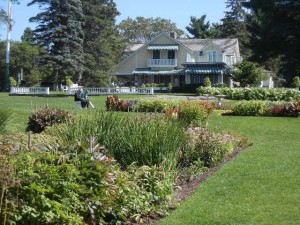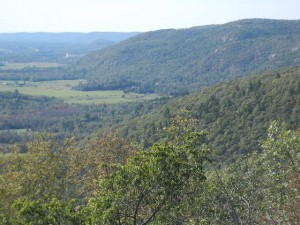8-10 September: The last area we explored on our homeward route was around Canada’s capital, Ottawa. We camped about a half hour north of the city, in Gatineau Park. The first day we spent most of our time in the Canadian Museum of History. This is a large and attractive museum, with so much to see that we concentrated mainly on the First Peoples of the Northwest Coast and First Peoples exhibit halls on the lower level and decided that we would like to come back in the future to go through the upper three floors.
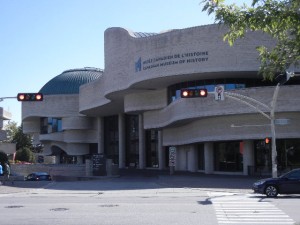
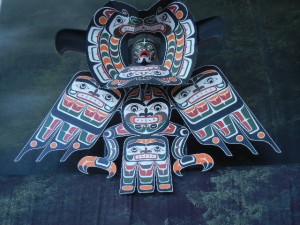
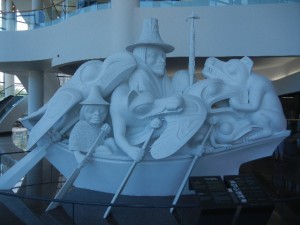
We also very much enjoyed the 45-minute movie Rocky Mountain Express, which told the story of building Canada’s first transcontinental railway through the rugged Canadian Rockies, with beautiful sequences of a restored steam locomotive speeding through spectacular scenery. This film was particularly meaningful to us after having traveled through Rogers Pass and Kicking Horse Pass this summer. In the late afternoon we biked around Ottawa’s Capitol Cycle Route, a loop running along the bank of the Rideau Canal, through a residential/industrial area, then back near the Ottawa River and the Parliament buildings. The canal, built in 1832 in case of war between the U.S. and Canada, connects Ottawa with Lake Ontario and the St. Lawrence River.
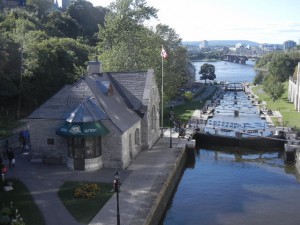
We spent the next day exploring Gatineau Park. During certain dates and times, the parkway running through it is open only to bicycles and pedestrians, making it a popular destination for cyclists from the nearby capitol region. This was a Sunday, and some of the most popular trailhead parking lots were full and even overflowing. We took three short loop hikes. One led past a waterfall to the beautifully landscaped former estate of William Lyon Mackenzie King, Canada’s Prime Minister during most of the 1920s through 1940s. Our other two hikes led to viewpoints overlooking the broad plain of the Ottawa River valley from the Eardley Escarpment, which was formed by faulting that lifted the ancient granite of the Canadian Shield followed by erosion of the overlying sedimentary rock during the ice age.
